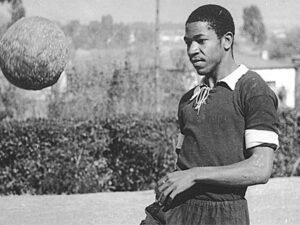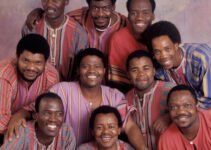This is a brief insight into South Africa’s diverse and vibrant history on March 23, a mosaic formed with strands of success, hardship, and perseverance. As we delve into the past of South Africa, we embark on a voyage through the ages, manoeuvring through the intricacies that have moulded the country we recognize today.

2020: President Cyril Ramaphosa calls for national lockdown for 21 days in South Africa
In March 2020, South Africa declared a national state of disaster due to the global pandemic of COVID-19. The government took drastic measures to protect and contain the virus, with 61 confirmed cases in the country at that time.
1994: Government withdraws ten police officers from service
President F.W. De Klerk withdrew ten unnamed officers implicated in the Third Force political violence allegations. The officers were withdrawn without any loss of privileges. Lt.-Gen. Basie Smit and Lt.-Gen. Johan Le Roux voluntarily suspended themselves.
1993: Prof. Hudson Ntsanwisi, former Chief Minister of Gazankulu, dies in Johannesburg
Hudson William Edison Ntsan’wisi was born in Tzaneen in 1920. He became a teacher after graduating from Lemana Training Institution and later obtained a Master of Arts Degree from the University of South Africa. He served as the first Chief Minister of Gazankulu for 24 years until his death in 1993. Ntsan’wisi was a talented writer and wrote several Tsonga novels, including Masungi. He was fluent in several languages, including Afrikaans, English, French, and German.
1992: NP presents its revised constitutional proposals
The NP government proposed a two-phase plan of transition during the CODESA discussions. The first phase would appoint multiparty transitional councils to oversee regional and local government, finance, and multiracial elections. The second phase proposed elections for a transitional administration, which would remain in power for ten years. All CODESA participants, except the IFP, rejected the government proposals. The ANC accepted the plan for the constitution to be drafted by an elected body, but rejected the part of the proposals that made the government assume both player and referee role during the first phase of the transition. Additionally, the ANC rejected the government proposal that it dismantle its armed wing, Umkhonto we Sizwe, before a full transitional government was in place.
1970: South Africa is banned from Davis Cup due to Apartheid policy in sport
South Africa was banned from many international sporting bodies during Apartheid, including the Davis Cup. They were briefly reinstated in 1973 but banned again in 1978. After the end of Apartheid, they were readmitted to the Davis Cup and other international sporting bodies.
1966: South African Communist Party leader Abram Fischer is sentenced to life imprisonment on charges of communism
During the 1940s, Bram Fischer served on the Johannesburg District Committee and the Central Committee of the Communist Party of South Africa (later SACP). In 1943, he helped A. B. Xuma revise the African National Congress (ANC) constitution, and was charged with incitement during the mineworkers’ strike in 1946. He was also a member of the Congress of Democrats and formed part of the defence team for the leaders of the movement during the Treason Trial of 1956 to 1961. He also defended the accused during the Rivonia Trial in 1964. It was inevitable that his involvement with anti-Apartheid activists and his dedication to the SACP would implicate him in illegal activities. Therefore, in September 1964, Fischer was arrested and charged with being a member of the Communist Party, a banned organisation. He was granted bail, and in January 1965 he went underground. He was only recaptured in November of that year. On March 23, 1966, he was found guilty of violating the Suppression of Communism Act and conspiring to commit sabotage. These convictions lead to a sentence of life imprisonment in Pretoria Central Prison.
1952: Chief Cyprian Zulu warns his people not to participate in the Defiance Campaign
The Defiance Campaign was a mass national action in response to apartheid laws enacted by the South African government in the 1950s. The campaign attracted thousands of people to political activism and resulted in over 8,500 people being imprisoned for refusing to obey apartheid laws. It was supported by organisations like the Congress of Democrats and the South African Indian Congress (SAIC).
1923: Steve Mokone is born
Steve ‘Kalamazoo’ Mokone was the first black professional footballer to play in Europe. He signed for the English Club Coventry in 1955 and was elected Europe’s best soccer player in 1959. He is regarded as South Africa’s greatest footballer and is often compared with the world’s all-time greats, including Pele of Brazil.
1863: Botanist and Explorer of the South African interior, William J. Burchell, dies
William John Burchell, English Explorer, naturalist, traveller, artist, and author was born in 1792. The son of a wealthy nurseryman. Burchell travelled nearly 7 000 km throughout South Africa between 1810 and 1815, collecting specimens of animals and plants. He described his journey in a book titled Travels in the Interior of Southern Africa. His collection contains the most extensive examples of African fauna and flora. Burchell’s travels, however, exhausted his fortune, and he became quite isolated and disillusioned. On 23 March 1863, he ended his own life in London. Burchell is remembered through a genus of plants named after him as well as a number of animal species.



